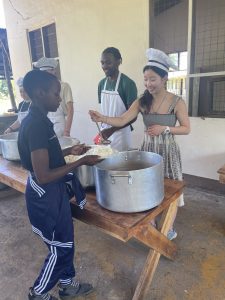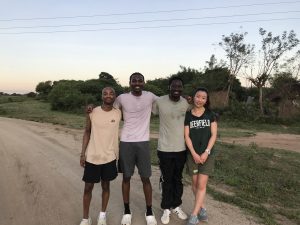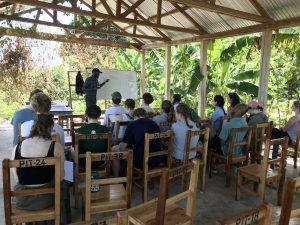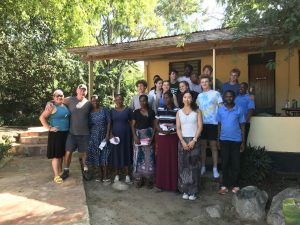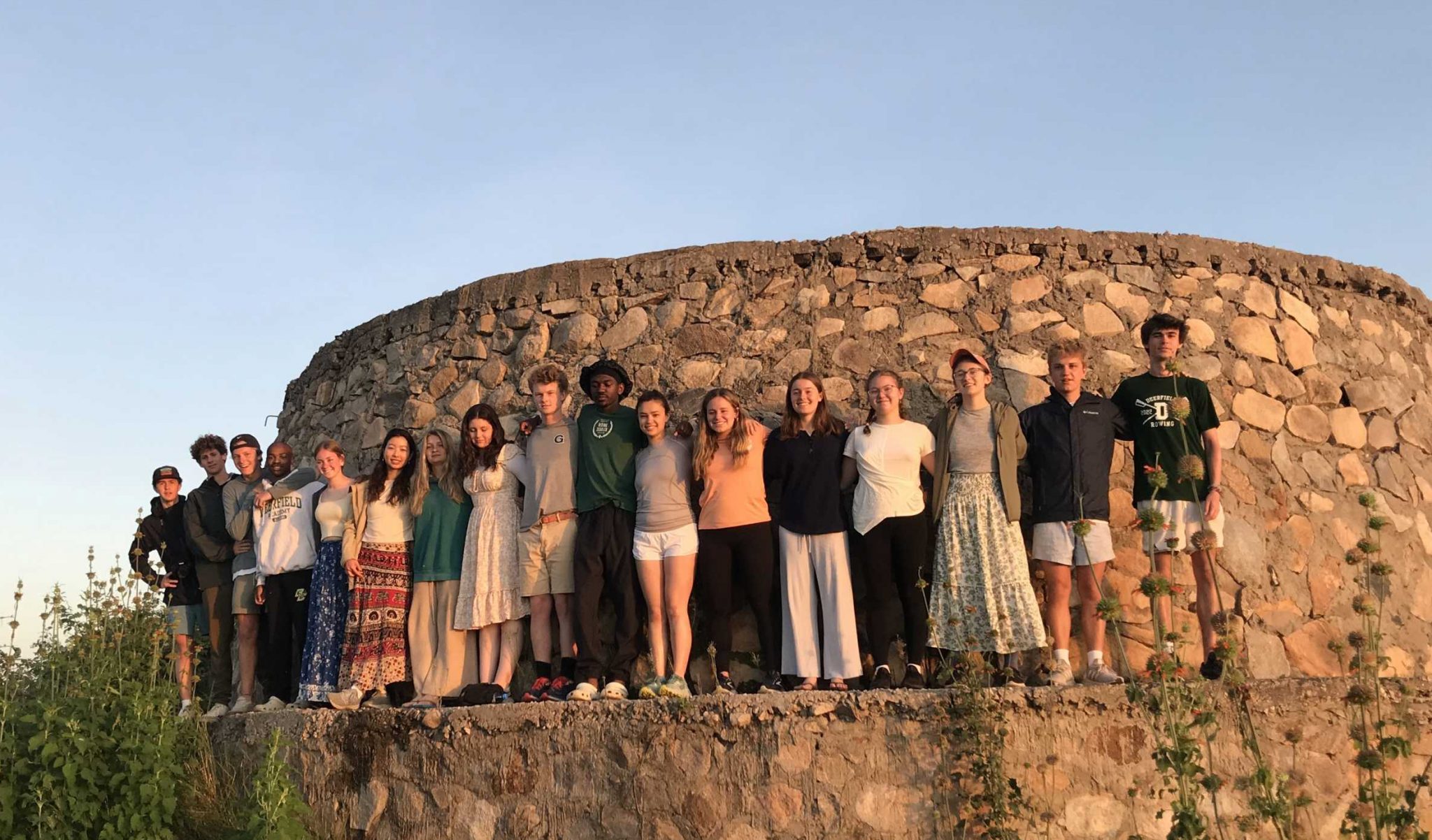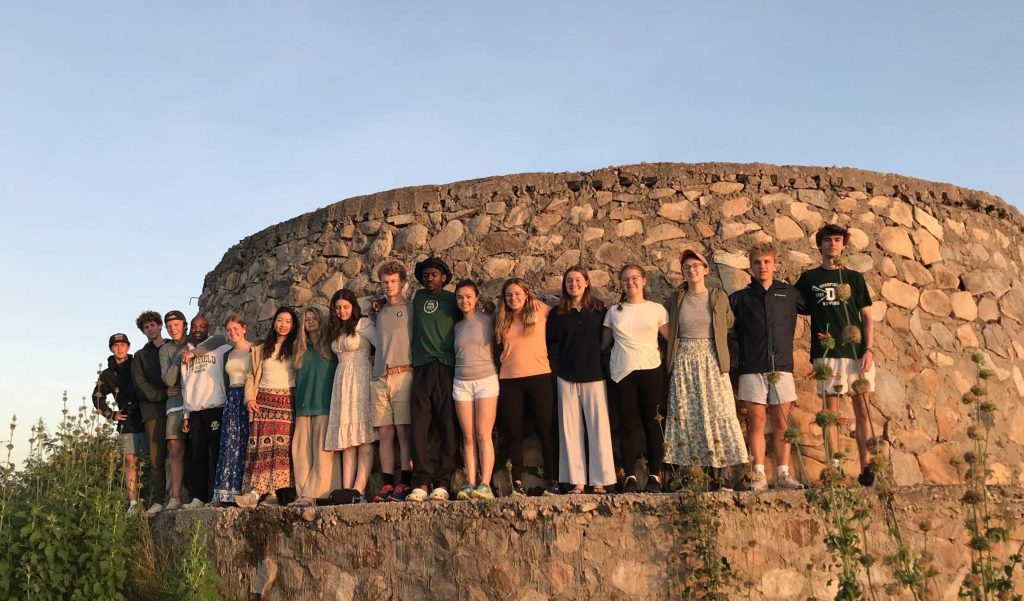Miu ’24, reflects on the meaning of having a sense of belonging.
In preparation for this trip, Mr. Miller held a workshop where we were asked to list some obstacles that may prevent us from feeling a sense of “belonging”. The parameters of my response were simple—race, language barriers, and, in its simplest form, privilege. All of these are true, but I don’t think I understood the extent of it until our trip to the Serengeti.
We left at dusk, packing the three bright green rangers in our respective groups, the Mercedes Benz logo shimmering under the rising sun. Eyes trailed as we cruised through the roads of Mwanza, children waving in excitement from the fields while most adults watched closely with furrowed eyebrows. When we finally arrived at the Serena Lodge after a long day of wildlife sightings and bumpy roads, we were immediately approached with warm wet towels and tropical refreshments. I held the drink wearily and slowly stepped through the entrance of the hotel, taken aback by this sudden act of service—but it didn’t end there. Upon arrival, the group jumped into the grand pool overlooking the plains of Serengeti and freshened up with warm showers in the neatly made yurts. The sudden change of environment was shocking. Just yesterday I was loading up the pitcher with bottled water to brush my teeth after a quick cold shower, and now I stood, in a luxurious bathroom perfectly lit with dim warm lamps surrounded by the aroma of the floral bar soap. I mention this not to come across as ungrateful for the day trip to Serengeti, but to highlight the blatant disparities in privilege I observed and the discomfort I felt because of it. That isn’t to say that I haven’t felt comfortable on this trip, though. Stepping foot in the Serena Lodge was the first time I felt anything close to discomfort.
In Swahili, there’s a phrase—karibu. It is spoken like a greeting, and tails most sentences spoken in Swahili. The direct English translation of it is “you’re welcome”, so, like Swahili, English conversations with our Tanzanian counterparts often end with this friendly expression. I still remember our first visit to the Joseph and Mary school on the first few days of the trip. The principal greeted us next to the “Welcome Deerfield” sign plastered on the wall, and we followed him into the building, crowding around the perimeters of his humid office. He delivered a brief introduction about the founding of the school, then promptly ended the string of words with “You’re welcome”. You’re welcome, I thought. But I haven’t even said thank you yet. For a while, this lingo sounded awkward to me. Why were “thank you” and “you’re welcome” reversed? That was until I realized that karibu actually resonated something closer to “you’re welcome here”.
The meaning of karibu speaks volumes about Tanzanian culture. Despite all the differences that may exist between us, the girls of MainSprings never hesitated to treat us like family, always holding our hands and showering each parting with hugs. My wrist is now adorned with colorful beads and string from friendship bracelets, my name carefully strung with hearts and other charms. I keep the tokens of friendship and wear them with pride. Beyond MainSprings, my morning runs were accompanied by tens of children from the local public school, who would stand tentatively on the sidewalk and begin sprinting alongside me as I passed by, their flip flops slapping against the ground as their giggles bubble from their faces.
I signed up for this trip with the expectation of doing service, but the longer I stay here, the more I realize that it’s me who will take away the most from the trip. Sure, we made our contributions through rotations out in the field, but the truth is that these small gestures are nothing compared to what this place has given me simply by sharing a piece of their world. And for that I’m grateful. This place has changed me, and I am grateful for every person I had the opportunity to share it with. So, asante sana MainSprings, nitakumiss and nitakukumbuka. (always)
